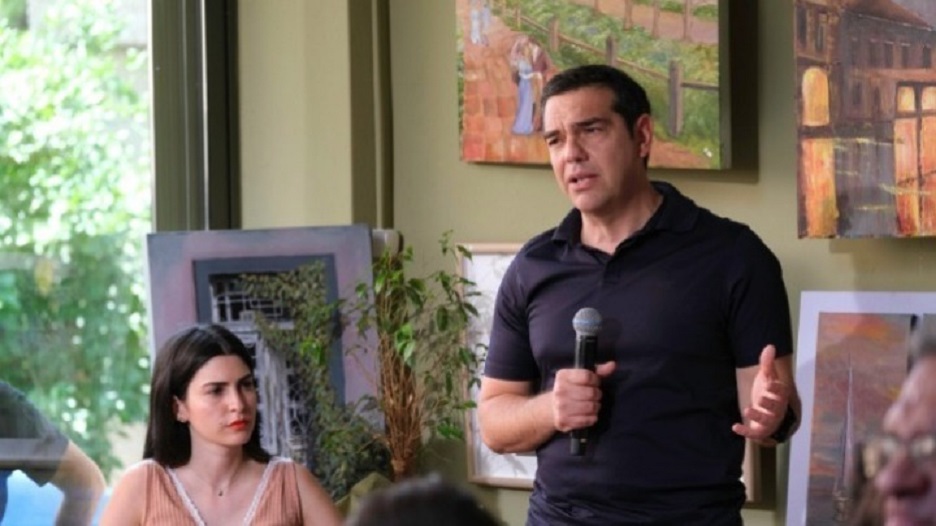
Tsipras: ‘Parasitic Greece’ the biggest obstacle to the country’s return to normality

Prime Minister Alexis Tsipras talking to representatives of start-ups during a visit to the Paleo Faliro Social Cooperative Enterprise (SCE). Photo ANA
The biggest obstacle to Greece’s return to normality is “the parasitic Greece of tax evasion and tax avoidance, offshore [companies] and a lack of incentives for healthy entrepreneurship,” Prime Minister Alexis Tsipras said on Saturday morning, talking to representatives of start-ups during a visit to the Paleo Faliro Social Cooperative Enterprise (SCE).
This “Greece of corruption and graft” was now locked in a conflict with the healthy and creative parts of Greece’s society and economy, he said, noting that the country’s biggest problem was an unhealthy financial system that did not support the real economy, not high wages or labour rights.
“If any steamroller is needed, it should be used on corruption and graft, on parasitic Greece and not the small [businesses] that want to create,” he added, expressing his conviction that, in this battle, “creative Greece will win.”
Visiting a food bank operated at the SCE, Tsipras said he was very happy to be in a space operated by active, self-motivated citizens, who demonstrated how activity in the social economy could combine the creation of jobs with social contribution.
He said that this was a new model for economic growth “that we are trying to promote as a reply to unemployment, because we want healthy entrepreneurship, we want young people that have the opportunity to create in our country and have a course of satisfactory activity but also profitability that has an impact on the social whole.”
The circular economy was a model that suited Greece and could be a way out of the crisis, he added.
“It would be a mistake to return to the extremely competitive model, where some smooth operators are able to tax evade and compress labour costs and survive at the expense of others that are making an effort. It is a new model that can be the answer to high unemployment but also to the entrepreneurship model. We want young people and entrepreneurs to have the opportunity to create in their country. To have the opportunity to make profits but not illegitimate profits,” he said.
The prime minister went on emphasise action taken for the financing of start-ups and to hook them up with research and the market, noting that his government had almost doubled the budget for research, from 0.6 pct of GDP to 1 pct of GDP, as well as funding startups in highly specialised areas, creating 4,000 jobs.
He also pointed to 500 million euros in EU funding to finance innovative ideas and link them with production, noting that the sum was a record for both Greece and other countries. Lastly, he referred to the Digital Greece programme, which supported 245 startuppers.
Startuppers acknowledged that state funding for startups and innovation had increased in recent years but also pointed to the difficulty of getting loans from the country’s banking system, prompting Tsipras’ comment that the financial system, and specifically the banks, was “the last obstacle for the country’s return to normality”.
“Greece, which in 2010 was bankrupt…can now borrow at the lowest rate in its history. The last obstacle that remains is linked with entrepreneurship and the banking sector. The way that was chosen to support the country in 2010 was to save the banks. The banks are now saved and it is time to also save society, the real economy and entrepreneurship. Banks lend only to those that can prove that they have no need to borrow,” he said.
On this front, Tsipras said, even though the government’s freedom of action was restricted, it had set in motion of a series of plans, such as the foundation of a Public Development Bank for financing SMEs and a plan for the issue of micro-loans to support the “future of the Greek economy”.
US Ambassador Pyatt stresses US companies’ interest in privatisations in Greece

